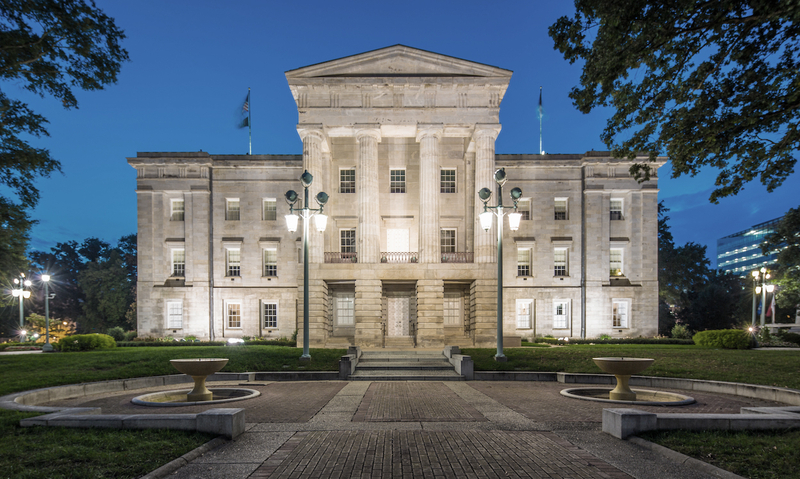UNC Poverty Center shuts down, but work continues on at new group


The University of North Carolina’s Center on Poverty, Work and Opportunity, in order to comply with a February decision by the university’s system governing board, shut its doors last week.
The privately-funded center based out of the Chapel Hill law school, UNC Board of Governor Chairman John Fennebresque explained in an editorial, “was unable to demonstrate any appreciable impact on the issue of poverty.”
But many had trouble believing that reasoning, speculating that the center’s closing was an attempt to censor Gene Nichol, the tenured law professor who heads the poverty center and a vocal critic of policies passed by the Republican-led legislature and Republican Gov. Pat McCrory.
The UNC Board of Governors gets its appointments from the state legislature, and its ranks include several major contributors to the political campaigns of state Republicans.
But the work at the poverty center isn’t finished, Nichol wrote in the Institute for Southern Studies last week.
Funding for the center’s work has continued, and even increased, after the controversial closing of the center, and Nichol will now head the N.C. Poverty Research Fund.
From Nichol, in the Institute for Southern Studies:
I’ve been blessed with a long and varied academic career. But none of my efforts has approached the extraordinary honor of working, side by side for the past seven years, with North Carolina low-income communities and the dedicated students, professors, advocates and providers who seek to serve them. Together, we have sought to focus a meaningful light on the challenges of poverty and to push back against policies that foster economic injustice. Those efforts, as you know, have led the UNC Board of Governors to close the Poverty Center. But poverty is the enemy in North Carolina. Not a tiny, privately-funded Poverty Center. Heather Hunt and I have no words to match the gratitude we feel for the astonishing support the Poverty Center has received, in recent months, from thousands across North Carolina and the nation.
As the Poverty Center closes, the Law School now launches the North Carolina Poverty Research Fund. Thanks to the generosity of North Carolina foundations, and engaged and committed citizens from across the country, the new Fund will allow us to hire student, faculty and post-doctorate scholars to assist us in probing the causes of, and solutions to, economic injustice – and to publish, extensively, the fruits of our research. Donors have indicated repeatedly that they are unwilling to see the crucial work of the Poverty Center driven from the halls of the university. The Fund will assure that it continues, and that it continues in Chapel Hill. Censorship has poor track record. It won’t prevail here either.
Poverty is North Carolina’s greatest challenge. In one of the most economically vibrant states of the richest nation on earth, 18 percent of us live in wrenching poverty. Twenty-five percent of our kids. Forty percent of our children of color. We have one of the country’s fastest rising poverty rates. A decade ago, North Carolina had the 26th highest rate among the states. Now we’re 10th, speeding past the competition. Greensboro, the federal government tells us, is the hungriest city in America. Charlotte has the nation’s worst economic mobility. Over the last decade, North Carolina experienced the country’s steepest rise in concentrated poverty. Poverty, amidst plenty, stains the life of this storied commonwealth. Even if our leaders choose to ignore it.
You can read the rest of Nichol’s comments here.


